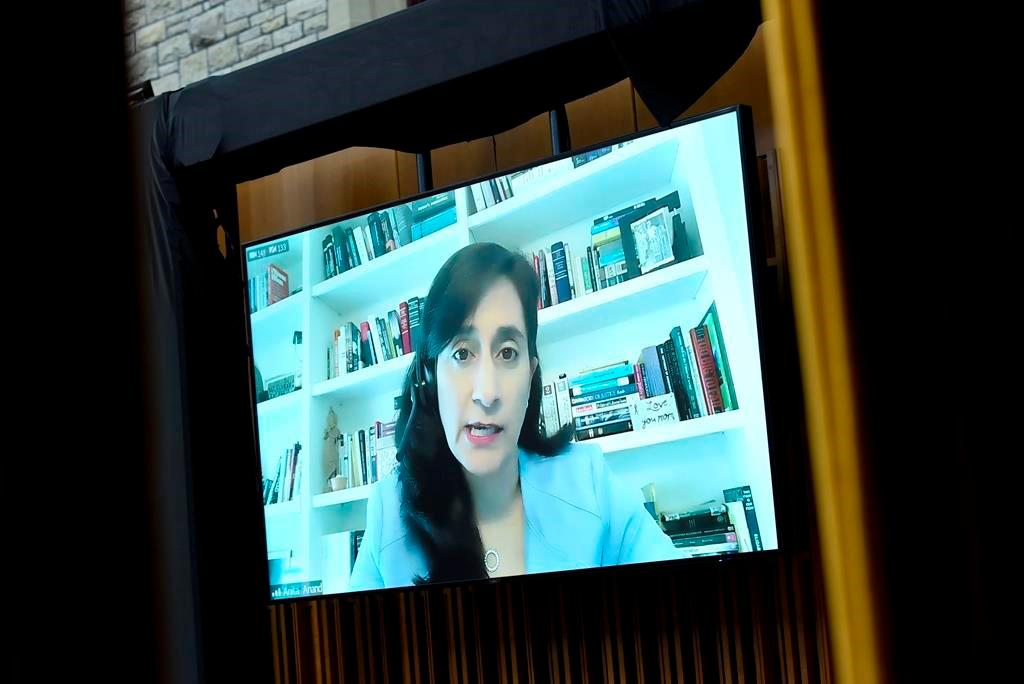OTTAWA—Every COVID-19 vaccine maker Canada signed a contract with last summer was asked if they could make the doses in Canada and all of them concluded they could not, Procurement Minister Anita Anand said Thursday.
Anand told the House of Commons industry committee that her department “proactively and repeatedly approached leading vaccine manufacturers’' about the matter.





